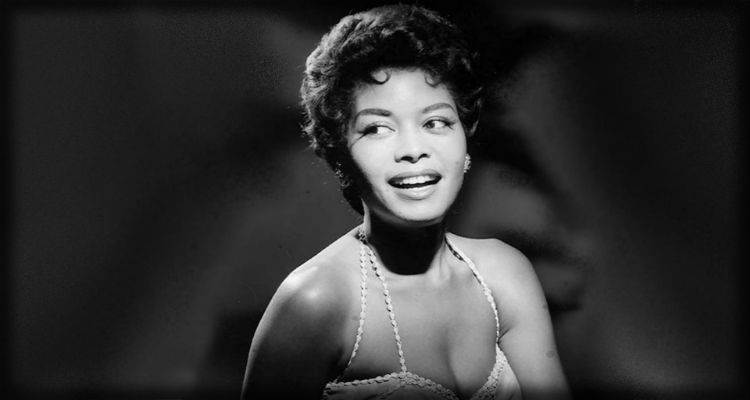Abbey Lincoln was an African American jazz singer, actor, and civil rights activist. Proclaimed “the last of the jazz singers,” Lincoln wrote songs about Black culture and civil rights and sang them in a dramatic, evocative style. She first performed as the glamorous singer Gaby Lee (1952–53) in Hawaii, but after moving to California she changed her name to Abbey Lincoln.
Lincoln was born Anna Marie Wooldridge in Chicago on August 6, 1930, the 10th of 12 children, but raised on a farm in Michigan. She loved performing as a small child and listened to music constantly – later recalling hearing Holiday and Coleman Hawkins on a hand-cranked Victrola gramophone. Lincoln moved with her mother to Kalamazoo, Michigan, when she was 14 and began to sing with local bands. But by the early 50s, she had left the district and begun singing professionally in California (at the Moulin Rouge in Los Angeles) and in Honolulu, Hawaii. She went through several name changes (including Anna Marie, Gaby Lee, and Gaby Woolridge) before settling on Abbey Lincoln in 1956.
She recorded with Benny Carter in 1956 and performed a number in the 1957 Hollywood film The Girl Can’t Help It. Lincoln’s first of three albums for Riverside (1957-1959) had Max Roach on drums and he was a major influence on her. It was Roach who had introduced Lincoln to the producer Orrin Keepnews at Riverside Records in 1957. She was later to declare that Roach’s arrival in her life was the moment at which she found her way as a jazz artist. In autumn 1960, Lincoln sang on the recording of one of the most celebrated jazz contributions to the civil rights, Roach’s We Insist!, which became a milestone in jazz history.
Lincoln and Roach were married in 1962, an association that lasted until 1970. They worked together for a while but Lincoln (who found it harder to get work in jazz due to the political nature of some of her music) began devoting considerable energy to film acting by the end of the decade – she played opposite Ivan Dixon in Nothing But a Man (1964) and alongside Sidney Poitier and Beau Bridges in For Love of Ivy (1968). In 1973 she made People in Me recording for Verve (the high-profile jazz label adopted her for the rest of her working life), built around the concept of her spirit being possessed by female singing pioneers, including Bessie Smith and Holiday.
In 1975, Lincoln visited Africa, where her political consciousness was recognized, and politicians in Guinea and Zaire gave her the names Aminata and Moseka. She also took to lecturing at schools and universities, taught theatre studies at California State University at Northridge, and began to collect a succession of awards for her creative and community work.
During the 1980s, Lincoln’s creative output was smaller and she released only a few albums during that decade, including her two Billie Holiday tribute albums, which showed listeners that the singer was still in her prime. Her song “For All We Know” is featured in the 1989 film Drugstore Cowboy. During the 1990s and until her death, however, she fulfilled a 10-album contract with Verve Records. Abbey Sings Abbey, in 2007 was her swansong album. It was a poignant collection of new originals, covers of favorites such as Leonard Bernstein’s Lucky To Be Me, a bold a capella account of Tender As a Rose, and a distinctive reinvention of Windmills of Your Mind, with a superb Joe Lovano on saxophone. As she once said: “I live through music and it lives through me.”
Abbey Lincoln died in New York City on August 14, 2010; she was 80 years old.
Source:
http://www.theguardian.com/music/2010/aug/15/abbey-lincoln-obituary
http://www.allmusic.com/artist/abbey-lincoln-mn0000487535/biography



